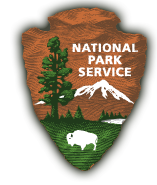Interpretive Plan – Executive Summary
Download Full Interpretive Plan
The story of agriculture in Iowa is the story of American agriculture and the expanding capacity of the American farms to feed the nation and the world. The Silos & Smokestacks National Heritage Area, comprised of 37 counties in northeast Iowa, was formed to support the interpretation of the region’s heritage to its residents and visitors. Silos & Smokestacks does so by supporting and working to strengthen interpretive attractions and sites in their efforts. The goal is to build a balanced and cohesive interpretive presentation across the Heritage Area. This Interpretive Plan presents the approach and means Silos & Smokestacks will use to achieve this goal.
The Interpretive Plan gives Silos & Smokestacks a tool to effectively work with its partners. Partners are well represented in the Silos & Smokestacks organization, from the Board of Trustees, the main executive body of the heritage area, to the Partnership Panel which acts as a steering committee. Almost all of the heritage area’s projects and programs are developed to provide technical and financial support for partners. Participation by partners is voluntary.
One of the main goals for the heritage area is the creation of a cohesive interpretive experience across the region. To this end, the Interpretive Plan presents a thematic structure that can be used by partners to align their interpretation with each other. The structure consists of major themes and subcategories of the region’s historical development, including the following:
- The Fertile Land looks at the prehistory and natural history of the region. Landforms, Prairie, The Grid, Communities, Farms, Weather
- Farmers and Families examines the people who farm the land. American Indians, Early Settlement, Ethnicity, Rural Character, The Family Farm, Cultural & Social Life, Non-farm Iowa, The Image of Iowa
- The Changing Farm looks at the evolution of farms over time. Products, The Labor of Farming, Farmsteads, Farmland, Markets, The Future of Farming, Iowa and the World, Conservation
- Higher Yields: The Science and Technology of Agriculture discusses the revolutions in agriculture. Machinery, Hybridization, Science, Tractors, Power and Energy, Genetics, Sustainibility
- Farm to Factory: Agribusiness in Iowa explores the evolution and role of agribusiness in shaping the character of the region.
– Field to Table, Early Industries, Transportation, Today’s Giants, Local Foods - Organizing for Agriculture: Policies and Politics looks as the efforts made by Iowans to shape their own destinies.
– The Need to Organize, Farmers’ Organizations, The US Department of Agriculture,
US Farm Policies
The interpretive structure helps guide the delivery of information to residents and visitors.
The Interpretive Plan also presents recommendations on how to developed strategies for
shaping the experience people have beyond the interpretation. Silos & Smokestacks wants
the exploration of the heritage area to be meaningful, memorable, and satisfying. It is a goal
for the heritage area that residents and visitors can easily orient themselves, learn to read
the landscape, experience coordinated interpretive programming, and are provided with the
means for independent discovery of the resources of the region. Overall the experience
should be fun for everyone.
The Interpretive plan goes on to describe who is and will be experiencing the heritage area.
These include residents, repeat visitors, students, travelers on motorcoach tours, heritage
travelers, families traveling together, niche travelers, recreation seekers, international
visitors, business travelers, through travelers, travel writers, guidebook editors, travel
associations, and distance “visitors.” Specific recommendations are provided for how to
reach out to each audience, to attend to the specific interests of each group.
The heritage development effort is largely driven by the projects Silos & Smokestacks will be
undertaking with the support of its partners. In many cases, partners themselves will
undertake certain projects with funding support from Silos & Smokestacks. The grant
programs are a primary mechanism by which Silos & Smokestacks implements the Interpretive
Plan. Projects for which partners will apply for funding will be measured against the
interpretive plan. Those most closely in line with the intentions of this plan will be funded.
The Interpretive Plan presents and prioritizes a long list of projects to be undertaken. While
the prioritization suggests a phasing schedule, the main intention is to focus the efforts of
organizations, including Silos & Smokestacks, that have limited (if any) staff, budgets, and
capacities. Four priority categories were established.
- Ongoing Projects are those that are currently underway;
- Core Projects are those that Silos & Smokestacks and its partners will undertake as soon as possible;
- Needed Projects are important, but partners, not Silos & Smokestacks, will take the lead on implementation; and
- Supplemental Projects are intended to enhance the range of activities available for visitors, improving the long-term sustainability of the heritage area, but these projects are low priority.
The projects were categorized in the following manner:
Ongoing Projects
- Graphic Identity
- Strategic Investment Areas
- CampSilos Educational Website
- CampSilos Excursions Website
- Farm-to-Table Tours
Core Projects, Lead by Silos & Smokestacks
- Sign Design Guidelines
- Gateway Signs
- Wayfinding Signs
- Community Identification Signs
- Place Identification Signs
- General Brochure
- Thematic Brochures
- Periodical Newsletter
- Exhibits at Partnering Organizations
- CampSilos Online Professional Development Workshop
Needed Projects, Lead by Partners
- Heritage Byway Signs
- Information Signs and Kiosks
- Interpretive Exhibits
- Regional Brochures
- Heritage Byway Brochures
- Field Guide
- Community Interpretation by Partners
- Geographic Clusters of Partners
- Thematic Clusters
- Heritage Byways
- Best Practices Workshop Series
- Lectures, Roundtable Discussions, and Forums
- Events
- Passport Program
- Made in Iowa
Supplemental Projects
- Audio Tour (revision)
- Children’s Activity Book
- Community Interpretation
- Oral History Program
- Living History Characters
- “Dealer Days”
- “Farming in the News” Exhibits
- “Future Farm” Exhibit


